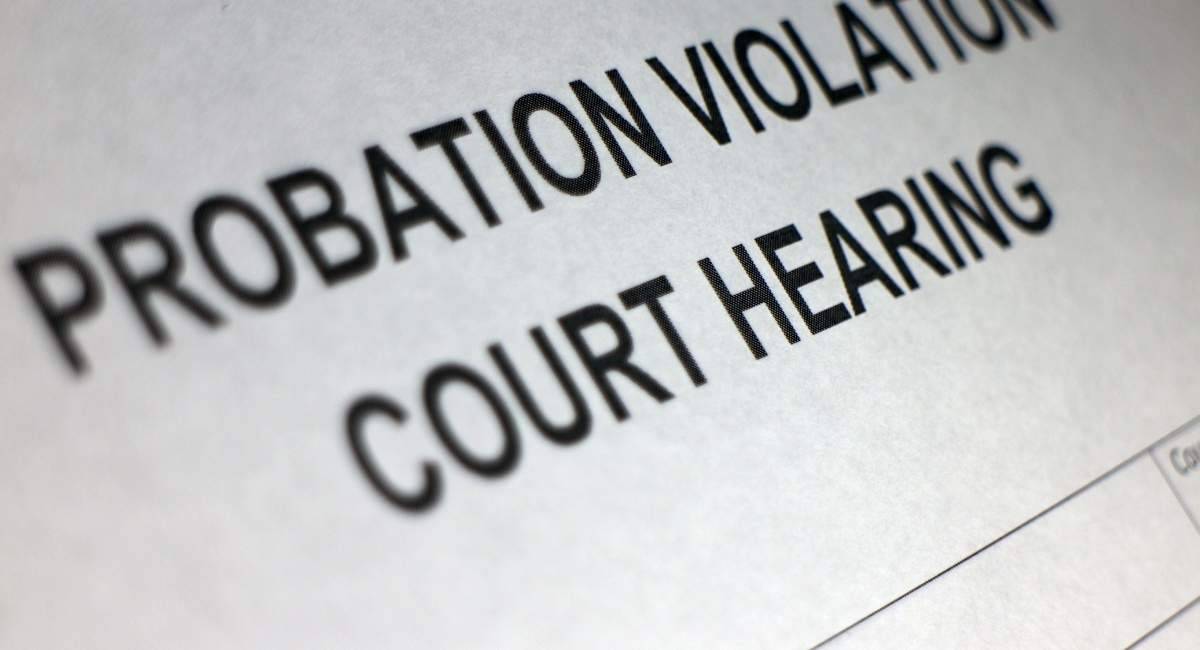When an alleged offender pleads guilty to or is convicted of a criminal offense, the court may sentence that person to a term of community supervision—the term that the 71st Texas Legislature changed adult probation to in 2003. Alleged offenders may be placed under community supervision for up to two years for a misdemeanor offense or up to 10 years for a felony.
As part of community supervision, individuals are often subject to numerous requirements and restrictions. Any violation of the terms of probation can lead to community supervision possibly being revoked and replaced with the jail or prison sentence for the original underlying crime.
Probation Violation Defense Lawyer in Plano, Allen, Frisco, and McKinney, TX
Did you allegedly violate the terms of your community supervision in Collin County? You will want to be sure that you have legal representation before your hearing. Contact Law Offices of Richard C. McConathy today for help achieving the most favorable outcome to your case.
Richard McConathy and Brian Bolton are experienced criminal defense attorneys in Plano who represent clients in communities throughout Collin County, including Plano, Allen, Frisco, McKinney, and many others. You can have our lawyers provide a complete evaluation of your case when you call (469) 304-3422 to schedule a free initial consultation.
Common Probation Violations in Texas
Judges handling criminal cases also determine the conditions of community supervision for an alleged offender. Under Texas Code of Criminal Procedure § 42A.301, a judge may impose “any reasonable condition that is designed to protect or restore the community, protect or restore the victim, or punish, rehabilitate, or reform the alleged offender.”
Conditions of probation can vary depending on the alleged offender’s prior criminal record and the nature of the crime he or she was convicted for, in addition to other factors. Generally, of the conditions most frequently imposed under community supervision include, but are not limited to:
- Commit no other criminal offense;
- Avoid using controlled substances and/or alcohol;
- Avoid persons or places of disreputable or harmful character, including any person, other than a family member of the alleged offender, who is an active member of a criminal street gang;
- Report to the supervision officer (often called a probation officer) as directed and obey all rules and regulations of the Collin County Community Supervision and Corrections Department;
- Allow probation officer to visit the alleged offender at the alleged offender’s home or elsewhere;
- Work faithfully at suitable employment to the extent possible;
- Do not leave the specified area (such as Collin County or the state of Texas) without the approval of supervision officer;
- Pay fines and court costs;
- Support all dependents;
- Participate, for a period specified by the judge, in any community-based program, including a community service project;
- If under custodial supervision in a community corrections facility: remain under that supervision; obey all rules and regulations of the facility, and pay a percentage of the alleged offender’s income to the facility for room and board, and the alleged offender’s dependents for their support during the period of custodial supervision;
- Submit to testing for alcohol or controlled substances;
- Attend counseling sessions for substance abusers or participate in substance abuse treatment services in a program or facility approved or licensed by the Department of State Health Services;
- With the consent of the victim of a misdemeanor offense or of any offense under Title 7 of the Texas Penal Code, participate in victim-alleged offender mediation;
- Submit to electronic monitoring;
- Reimburse the compensation to victims of crime fund for any amounts paid from that fund to or on behalf of a victim of the offense or if no reimbursement is required, make one payment to the compensation to victims of crime fund in an amount not to exceed $50 if the offense is a misdemeanor or not to exceed $100 if the offense is a felony;
- Reimburse a law enforcement agency for the analysis, storage, or disposal of raw materials, controlled substances, chemical precursors, drug paraphernalia, or other materials seized in connection with the offense;
- Pay all or part of the reasonable and necessary costs incurred by the victim for psychological counseling made necessary by the offense or for counseling and education relating to acquired immune deficiency syndrome or human immunodeficiency virus made necessary by the offense;
- Make one payment in an amount not to exceed $50 to a crime stoppers organization and as certified by the Texas Crime Stoppers Council;
- Submit a DNA sample to the Department of Public Safety for the purpose of creating a DNA record of the alleged offender;
- In any manner required by the judge, provide in the county in which the offense was committed public notice of the offense for which the alleged offender was placed on community supervision; and
- Reimburse the county in which the prosecution was instituted for compensation paid to an interpreter in the case.

Probation Violation Penalties in Collin County
Alleged probation violations may be technical or substantive. When an alleged offender commits a technical violation, it is usually the result of some kind of failure to satisfy a certain condition of his or her community supervision—such as paying a fine or meeting with a probation officer.
If an alleged offender commits a new criminal offense while on community supervision, it is considered a substantive violation. While isolated technical violations might result in little more than a warning, substantive violations or repeat technical violations can lead to the probation officer possibly requesting that the judge revoke the community supervision or add more conditions.
In certain cases, a supervision officer may seek a warrant for an alleged offender’s arrest. When people are accused of violating the terms of community supervision, they are entitled to a hearing at which they can attempt to explain or provide defenses as to the alleged probation violations.
Violation of community supervision hearings is not the same as criminal trials. Instead of a jury, the only person who hears the case and renders a decision is a judge who originally imposed the alleged offender’s sentence.
The State also has much lower burden of proof in these cases, only needing to prove an alleged violation by a preponderance of the evidence instead of beyond a reasonable doubt. The preponderance of the evidence standard means that essentially more than half of the evidence supports the State’s argument and the alleged offender “more likely than not” committed the alleged violation.
When a judge renders his or her decision after an alleged violation of a community supervision hearing, the alleged offender’s probation may be reinstated without any change, modified, or revoked. If the judge modifies the community supervision, changes could possibly include new or increased penalties such as:
- Fines;
- Court fees;
- Community service;
- Mandatory counseling; and/or
- Mandatory completion of drug or alcohol rehabilitation program.
If a judge revokes an alleged offender’s probation, it could result in that person receiving the maximum allowable jail or prison sentence for the underlying criminal offense.
Texas Probation Violation Resources
Community Supervision and Corrections | Collin County — Visit this website to learn more about the Collin County Community Supervision and Corrections Department. You can download forms, read answers to frequently asked questions, and pay court-ordered financial obligations. The Collin County Community Supervision and Corrections Department has four office locations, including two located at the following address:
Collin County Courthouse
2100 Bloomdale Rd., Suite 12262
McKinney, TX 75071
(972) 548-3660
Texas Department of Criminal Justice (TDCJ) — The TDCJ provides funding and certain oversight of community supervision in addition to being responsible for the supervision of offenders released from prison on parole or mandatory supervision. On this website, you can learn about the different divisions and departments of the TCDJ, read answers to frequently asked questions, and access other online services. You can also download annual reviews for every year going back to 2005.
Find A Collin County Probation Violation Defense Attorney | Law Offices of Richard C. McConathy
If you allegedly committed any kind of violation of your community supervision in Collin County, it is in your best interest to make sure that you have legal counsel as soon as possible. Law Offices of Richard C. McConathy fight to protect the rights of clients in Allen, Plano, McKinney, Frisco, and many surrounding areas of Collin County.
Plano criminal defense lawyers Richard McConathy and Brian Bolton will work to make sure that you achieve the most favorable outcome possible that allows you to complete your community supervision and move on with your life. Call (469) 304-3422 or fill out an online contact form to have our attorneys review your case and help you understand all of your legal options during a free, confidential consultation.


